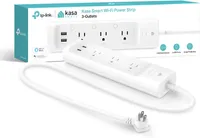Five Quick Tips To Reduce Electric Bills As Prices Surge
Electric bills surge in the summer as the weather and demand heat up. Employ these tips to lower costs.

Profit and prosper with the best of Kiplinger's advice on investing, taxes, retirement, personal finance and much more. Delivered daily. Enter your email in the box and click Sign Me Up.
You are now subscribed
Your newsletter sign-up was successful
Want to add more newsletters?

Delivered daily
Kiplinger Today
Profit and prosper with the best of Kiplinger's advice on investing, taxes, retirement, personal finance and much more delivered daily. Smart money moves start here.

Sent five days a week
Kiplinger A Step Ahead
Get practical help to make better financial decisions in your everyday life, from spending to savings on top deals.

Delivered daily
Kiplinger Closing Bell
Get today's biggest financial and investing headlines delivered to your inbox every day the U.S. stock market is open.

Sent twice a week
Kiplinger Adviser Intel
Financial pros across the country share best practices and fresh tactics to preserve and grow your wealth.

Delivered weekly
Kiplinger Tax Tips
Trim your federal and state tax bills with practical tax-planning and tax-cutting strategies.

Sent twice a week
Kiplinger Retirement Tips
Your twice-a-week guide to planning and enjoying a financially secure and richly rewarding retirement

Sent bimonthly.
Kiplinger Adviser Angle
Insights for advisers, wealth managers and other financial professionals.

Sent twice a week
Kiplinger Investing Weekly
Your twice-a-week roundup of promising stocks, funds, companies and industries you should consider, ones you should avoid, and why.

Sent weekly for six weeks
Kiplinger Invest for Retirement
Your step-by-step six-part series on how to invest for retirement, from devising a successful strategy to exactly which investments to choose.
Summer is right around the corner. It means trips, cookouts and on the less pleasant side of the spectrum, higher electric bills.
The reason? As weather heats up, more homes and businesses use air conditioning more. This places stress on an outdated energy grid, and suppliers base price on demand.
Therefore, starting on June 1, energy prices could raise significantly in deregulated energy markets.
From just $107.88 $24.99 for Kiplinger Personal Finance
Become a smarter, better informed investor. Subscribe from just $107.88 $24.99, plus get up to 4 Special Issues

Sign up for Kiplinger’s Free Newsletters
Profit and prosper with the best of expert advice on investing, taxes, retirement, personal finance and more - straight to your e-mail.
Profit and prosper with the best of expert advice - straight to your e-mail.
Deregulation's impact on electric bills
Some states have regulated energy and some don't. Regulated states usually have the utility as your sole provider for electricity services since your location dictates who you have.
Alternatively, in deregulated markets, you could have a supplier and utility. The supplier's main task is to puchase energy at competitive prices then turn around to offer them to customers.
In essence, you're gaining the power of choice as you can shop multiple providers to find the right plans and pricing that work for you. Meanwhile, the utility company maintains powerlines, reads meters, handles account matters and responds to outages.
A perk of deregulated energy is you have plan choices. Fixed-rate plans lock in your electric rate for a specified time. The only issue with them is if you need to cancel before the term expires, the provider could charge you an early termination fee. But by that same token, you won't have to worry about rate increases while you're under contract.
Meanwhile, variable-rate plans can change prices each month, based on factors like energy load demand and climate.
Furthermore, when demand increases, like it does during the summer, it can result in higher rates and electric bills. The good news with variable-rate plans is you're not under contract, so you're free to switch at any time without any fees.
Which cities will have the highest surge in electric bills?
Arbor, an app that helps you save on energy bills, conducted a study to find the cities where electric bills will increase the most this summer.
Here are the seven cities with the largest increases:
City and Utility | Expected Summer Rate | Estimated Monthly Supply Cost | Example 12-Month Low, Fixed Rate Available | Potential Monthly Savings |
|---|---|---|---|---|
Jersey City, Jersey (PSE&G) | 18.03 ¢/kWh Up 28% | $162.27 | 12.39¢/kWh | $50.76 |
Trenton, New Jersey (PSE&G) | 18.03 ¢/kWh Up 28% | $162.27 | 12.39¢/kWh | $50.76 |
Pittsburgh, PA (Duquesne Light) | 12.11 ¢/kWh Up 11% Expiring 11/30/25 | $108.99 | 7.59¢/kWh | $40.68 |
Cincinnati, OH (Duke Energy) | 10.45¢/kWh Up 30% Expiring 11/30/25 | $94.05 | 8.02¢/kWh | $21.87 |
Philadelphia, PA (PECO) | 10.36¢/kWh Up 10% Expiring 11/30/25 | $93.24 | 9.2¢/kWh | $10.44 |
Chicago, IL (ComEd) | 9.594 ¢/kWh Up 45% | $86.34 | 8.19 ¢/kWh | $12.64 |
Allentown, PA (PPL Electric Utilities) | 9.167 ¢/kWh Up 9% Expiring 11/30/25 | $82.50 | 8.49 ¢/kWh | $6.09 |
A couple things to note: First, every city making this list is in a deregulated energy market. Two, prices per unit when you buy energy are in cents per kilowatt hour. The average home uses around 855 kWh per month, according to SaveonEnergy, but you can group together your last three electric bills to estimate how much you use per month.
The rates Arbor used for this table was current as of May 1. However, rates are subject to change at anytime.
What this tables shows is the anticipated rate you can expect to pay in these cities when the surge pricing goes into effect and after you switch to a fixed-rate plan. In areas like New Jersey and Pittsburgh, you could save up to $50 monthly off your electric bills by switching to a fixed-rate provider.
How do you switch? It depends on where you live. Some communities negotiate rates with suppliers for their residents, while in other areas, you're free to go about shopping for your own plan.
If your community does the negotiations for you, check your mail for any notifications, as they'll include notices and ways to choose another supplier.
If you're on your own, use sites like Arbor or SaveOnEnergy to shop for and compare prices in your area. Once you find a plan you like, you can complete the process through the website or call customer service for any questions you have or to sign up.
Another option is to reach out to your local utility. They have resources available, where they direct you to shopping platforms to pick a plan.
Keep in mind that even when you switch suppliers, your utility remains the same. They'll also be your point of contact with any account issues or to report an outage.
Other ways to lower electric bills
Here are some items you can buy to lower electric bills quickly:
ecobee Smart Sensor 2 Pack - Comfort, Security, Energy Savings - Smart Home
Smart sensors detect body temperature and transmit back to smart thermostats when to heat, cool or forget a room. This can help you save on energy by preventing empty rooms from cooling.
New 2025 ecobee Smart Thermostat Essential
A smart thermostat allows you to program the temperature when you're away from home. Setting it 8 to 10 degrees warmer in the summer can shave up to 10% off your cooling costs.
NICETOWN 100% Blackout Window Curtain Panels
Up to a quarter of your thermal energy loss comes from your windows. Shielding them with blackout panels keep your rooms cool and your energy costs reasonable.
Kasa Smart Plug Power Strip KP303, Surge Protector with 3 Individually Controlled Smart Outlets
Devices can use energy even when not powered on. Eliminate energy vampires and reduce your electric bills with smart power strips, which cut off the power without having to unplug the device.
The bottom line
Electric bills continue to rise. And with summer right around the corner, now marks an excellent time to prepare your home for the sweltering heat.
If you live in a deregulated energy market, shop around suppliers and find a fixed-rate energy plan that'll help you keep costs low during peak demand. Also, consider outfitting your home with some of these smart home devices, as they can keep costs reasonable when the weather isn't.
Related content
Profit and prosper with the best of Kiplinger's advice on investing, taxes, retirement, personal finance and much more. Delivered daily. Enter your email in the box and click Sign Me Up.

Sean is a veteran personal finance writer, with over 10 years of experience. He's written finance guides on insurance, savings, travel and more for CNET, Bankrate and GOBankingRates.
-
 Nasdaq Leads a Rocky Risk-On Rally: Stock Market Today
Nasdaq Leads a Rocky Risk-On Rally: Stock Market TodayAnother worrying bout of late-session weakness couldn't take down the main equity indexes on Wednesday.
-
 Quiz: Do You Know How to Avoid the "Medigap Trap?"
Quiz: Do You Know How to Avoid the "Medigap Trap?"Quiz Test your basic knowledge of the "Medigap Trap" in our quick quiz.
-
 5 Top Tax-Efficient Mutual Funds for Smarter Investing
5 Top Tax-Efficient Mutual Funds for Smarter InvestingMutual funds are many things, but "tax-friendly" usually isn't one of them. These are the exceptions.
-
 We Retired at 62 With $6.1 Million. My Wife Wants to Make Large Donations, but I Want to Travel and Buy a Lake House.
We Retired at 62 With $6.1 Million. My Wife Wants to Make Large Donations, but I Want to Travel and Buy a Lake House.We are 62 and finally retired after decades of hard work. I see the lakehouse as an investment in our happiness.
-
 I'm an Opportunity Zone Pro: This Is How to Deliver Roth-Like Tax-Free Growth (Without Contribution Limits)
I'm an Opportunity Zone Pro: This Is How to Deliver Roth-Like Tax-Free Growth (Without Contribution Limits)Investors who combine Roth IRAs, the gold standard of tax-free savings, with qualified opportunity funds could enjoy decades of tax-free growth.
-
 I'm a Real Estate Investing Pro: This Is How to Use 1031 Exchanges to Scale Up Your Real Estate Empire
I'm a Real Estate Investing Pro: This Is How to Use 1031 Exchanges to Scale Up Your Real Estate EmpireSmall rental properties can be excellent investments, but you can use 1031 exchanges to transition to commercial real estate for bigger wealth-building.
-
 My Spouse and I Are Saving Money for a Down Payment on a House. Which Savings Account is the Best Way to Reach Our Goal?
My Spouse and I Are Saving Money for a Down Payment on a House. Which Savings Account is the Best Way to Reach Our Goal?Learn how timing matters when it comes to choosing the right account.
-
 The High Cost of Sunshine: How Insurance and Housing Are Reshaping Snowbird Living
The High Cost of Sunshine: How Insurance and Housing Are Reshaping Snowbird LivingThe snowbird lifestyle is changing as insurance and housing costs climb. Here’s how retirees are adapting and where they’re choosing to go.
-
 How to Turn Your 401(k) Into A Real Estate Empire — Without Killing Your Retirement
How to Turn Your 401(k) Into A Real Estate Empire — Without Killing Your RetirementTapping your 401(k) to purchase investment properties is risky, but it could deliver valuable rental income in your golden years.
-
 We're 62 With $1.4 Million. I Want to Sell Our Beach House to Retire Now, But My Wife Wants to Keep It and Work Until 70.
We're 62 With $1.4 Million. I Want to Sell Our Beach House to Retire Now, But My Wife Wants to Keep It and Work Until 70.I want to sell the $610K vacation home and retire now, but my wife envisions a beach retirement in 8 years. We asked financial advisers to weigh in.
-
 We Inherited $250K: I Want a Second Home, but My Wife Wants to Save for Our Kids' College.
We Inherited $250K: I Want a Second Home, but My Wife Wants to Save for Our Kids' College.He wants a vacation home, but she wants a 529 plan for the kids. Who's right? The experts weigh in.



